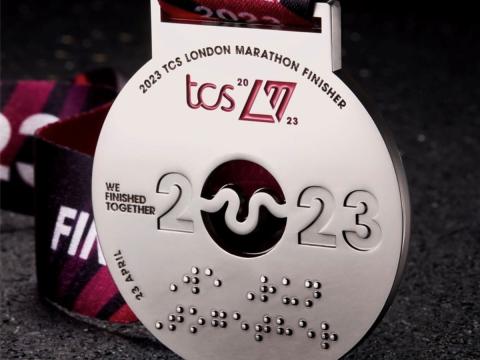

The London Marathon, one of the world's most prestigious road races, has introduced a new sustainability initiative that requires participants to opt in for a finisher’s medal during registration. This change, aimed at reducing waste and minimizing the event’s environmental footprint, has sparked a mix of reactions among runners and the broader running community.
With tens of thousands of medals produced each year, many of which may go unused or discarded, race organizers have sought to address concerns over excess waste. By making medals an optional choice, the London Marathon aligns itself with a growing trend in major sporting events that prioritize eco-friendly practices. This initiative follows similar steps taken by other races worldwide, including offering biodegradable bibs, reducing plastic bottle usage, and implementing greener transportation strategies.
Hugh Brasher, Event Director for the London Marathon, explained the reasoning behind the decision: “We are committed to making the London Marathon one of the most sustainable races in the world. The opt-in medal system allows runners to make a conscious decision about whether they truly want a medal, helping to reduce unnecessary production and waste.”
While some athletes have praised the move as a positive step toward sustainability, others have expressed disappointment, fearing that they might inadvertently miss out on a cherished memento. For many, the finisher’s medal symbolizes months of training, personal achievement, and dedication to completing the race.
“I totally support sustainability, but I would hate to forget to check the box and end up without my medal,” said one runner who is preparing for the 2025 race. Another commented, “It’s a great idea for those who don’t want a medal, but I hope they make the option very clear during registration.”

To ensure that participants do not unintentionally miss out on their medals, race organizers have stated that clear prompts will be included during the registration process. Additionally, runners who initially opt out but later change their minds may have the opportunity to amend their selection before race day.
Apart from the medal opt-in rule, the London Marathon has also introduced other sustainability measures, such as offering runners the option to donate to tree-planting initiatives instead of receiving race shirts and expanding the use of refillable water stations along the course.
The London Marathon’s decision raises a broader question about the future of finisher medals in major races. As sustainability becomes an increasing priority, more events may adopt similar measures, encouraging runners to be more mindful of their choices.
For now, the new rule serves as a test of how well the running community can balance tradition with environmental responsibility. Whether it becomes a standard practice across other marathons remains to be seen, but one thing is certain—sustainability in racing is here to stay.
Discover More Content





